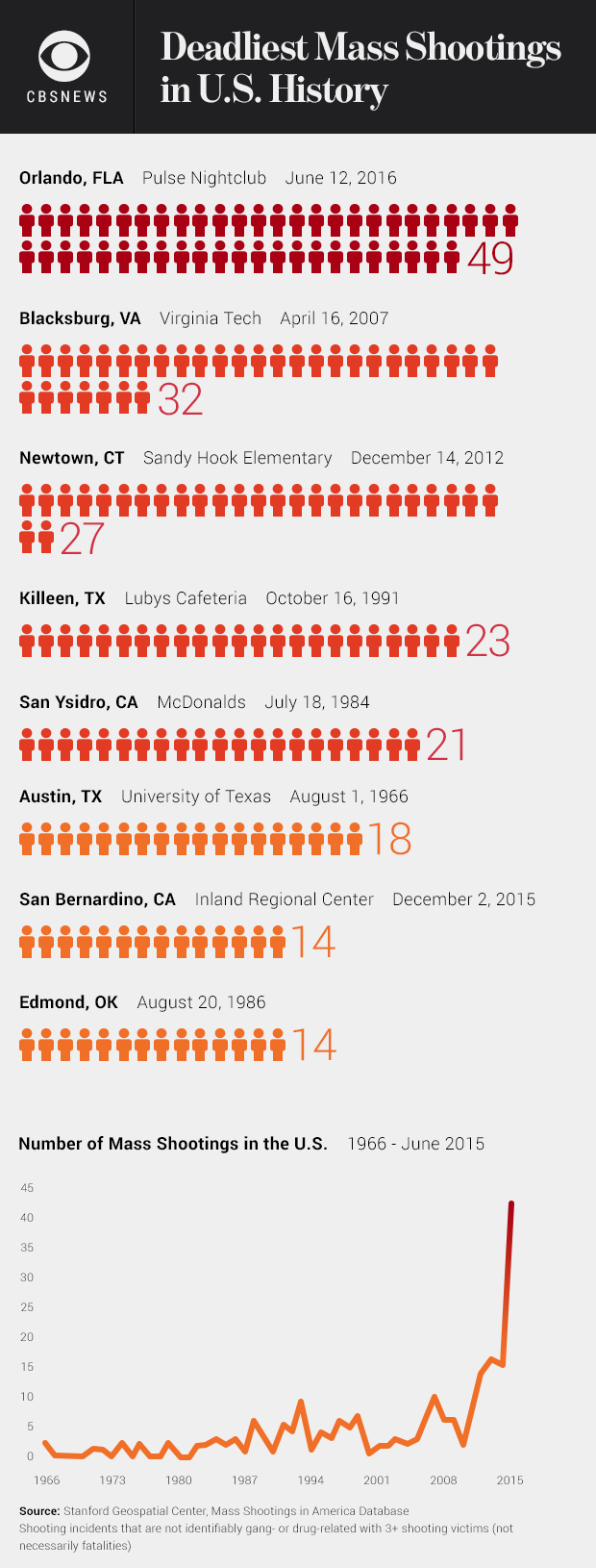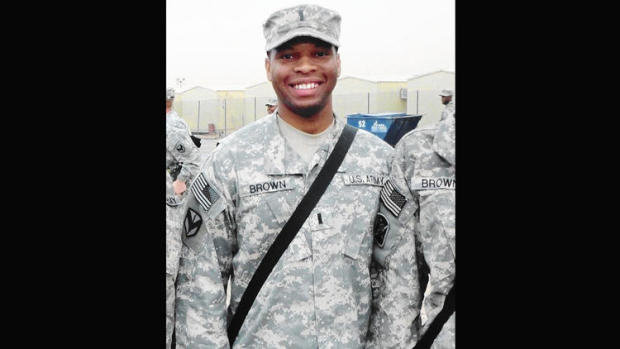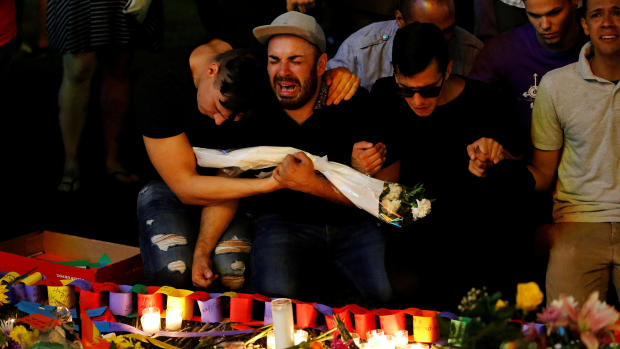Orlando shooter was "cool and calm" at the end
ORLANDO - At about 5 a.m. on Sunday, Omar Mateen was in the bathroom of Pulse nightclub in Orlando holding several hostages, the city's top cop said.
He had been making phone calls and spoken with hostage negotiators, seeming all the while to be "cool and calm," said Orlando Police chief John Mina at a press conference Monday giving updates on the Orlando mass shooting that left 49 people dead, in addition to Mateen.
Mina said it was then that he made the decision to send in the SWAT team.
"We believed further loss of life was imminent" based on what Mateen was telling people, Mina said.
As the country holds vigils for the dozens of the victims, questions about the 29-year-old shooter and the police decision to storm the club known for tolerance for all people are only beginning to find answers.
Mina said at first the SWAT team attempted to breach a wall of the club with an explosive, but didn't succeed in fully knocking it down. So they sent in an armored vehicle to finish the job, rescued dozens of hostages, and engaged in a ferocious shootuout with Mateen.
After it was over, it ended up being the worst mass shooting in American history.
The Pulse nightclub - which describes itself as Orlando's hottest gay bar -- had been hosting a Latin night. Mateen called 911 during his nearly three-hour, well-armed standoff inside the club and pledged allegiance to the Islamic State of Iraq and Syria (ISIS.)
While ISIS took credit for the attack, investigators have so far uncovered no clear links between the shooter and its Syria-based terrorist administrators.
FBI Director James Comey on Monday echoed President Obama's statement that the Orlando shooting was not a foreign-born plot and he also outlined the agency's previous interactions with the shooter.
"So far, we see no indication that this was a plot directed from outside the United States and we see no indication that he was part of any kind of network," Comey told reporters.
The intelligence community, Comey said, is "highly confident that this killer was radicalized at least in part through the Internet."
Investigators have already seized electronics from the suspect's residence, including a laptop computer, a Kindle and cell phones, a law enforcement source told CBS News senior investigative producer Pat Milton.
The electronic devices are being analyzed at the FBI lab in Quantico, Va., with the highest priority being what he was looking at on the Internet and who he was communicating with just prior to the attack. The source said that investigation indicates that the shooter heavily used the Internet and had a social media presence.
The source said the shooter left a footprint and doesn't appear to have deleted files or scrubbed anything. The source noted this was different from the San Bernardino terrorists who left no footprints. His cell phone is posing no encryption issues as San Bernardino.
A law enforcement source said that the shooting suspect legally purchased recently the two weapons used in the attack at the shooting center in Port St. Lucie near his Fort Pierce home. He had a Glock 17 handgun purchased on June 5, a Sigsauer MCX assault rifle purchased on June 4 on his person during the shootout, and investigators later found a .38-caliber weapon in his vehicle.
Mateen was a body builder and a religious man who attended the local mosque and wanted to become a police officer. He was born in New York to Afghan parents. He had no apparent criminal record and was working as a security guard before the attack.
The shooter had been contacted by U.S. law enforcement at least twice in recent years. He had traveled to Saudi Arabia at least twice - once in 2011 and again in 2012 - as part of a religious pilgrimage.
Mateen surfaced on the FBI's radar in 2013, when coworkers said he'd made inflammatory remarks about terrorist ties.
"Mateen was interviewed twice," said the FBI's Ron Hopper, who is leading the investigation into the Orlando attack. "Ultimately we were unable to verify the substance of his comments and the investigation was closed."
In 2014 he came to the FBI's attention again, this time because of contact he had with Moner Abu-Salha, the first known American suicide bomber in Syria. But once again, Mateen was cleared of any wrongdoing
He was not on a current terror watchlist, a U.S. intelligence source tells CBS News' Len Tepper. He was entered into a terrorist screening database during the time the FBI was questioning him, but he was removed when the FBI closed the investigation, Tepper reports.
Despite those two investigations, Mateen was not on any list that prevented him from purchasing a weapon.
While investigators search for answers, witnesses and victims' friends and family have been sharing stories of heroism and heartbreak amid the chaos.
Florida Governor Rick Scott many of the people who died in the Orlando gay bar were from Puerto Rico. So far, 48 of the 49 victims have been identified.
The Mexican Foreign Ministry said Monday that at least three of its country's citizens were killed as well.
Josh McGill and friend Ashley Summers fled the club and lost track of one another. McGill found shelter behind a car.
"I was about to run for it, to the safe zone," McGill said. "And I hear someone kind of like mumbling, 'Help! Help!'"
A few feet away, 27-year-old Rodney Sumter Jr. lay wounded and bleeding, shot in each arm and once in the back.
"I only saw the one bullet at first, and I was like, 'We need to stop the bleeding.' And he's like, 'Okay.' So I took my shirt off and I tied it around as tight as I could and then I saw his other arm had been shot. So I took his shirt off, tied it around that one," McGill recounted.
The two hobbled their way to police at the scene.
"So the police officer turned to me and said, 'Okay, this is what the deal is. You're going to lay down in the back of that cop car and he's going to lay on top of you, and I want you to bear hug him and try to keep all the pressure on him as you can.' So I did," McGill said. "And they were like 'Also, like keep him conscious.'"
McGill held Sumter all the way to the hospital.


